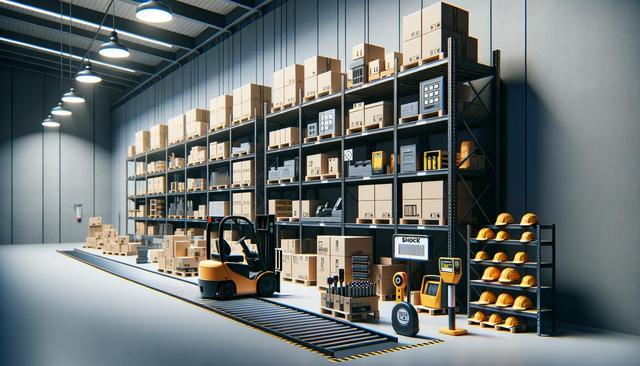Understanding the Role: What Does a Warehouse Worker Do?
Before diving into a career in logistics, it’s important to understand what does a warehouse worker do on a daily basis. Warehouse workers play a vital role in the supply chain by ensuring inventory is received, stored, and shipped efficiently. Their responsibilities may include unloading trucks, organizing goods, scanning barcodes, packing orders, and keeping the workspace clean and safe. Depending on the size and type of warehouse, tasks can vary from simple manual labor to operating machinery such as forklifts or pallet jacks. This variety makes warehouse positions suitable for individuals with different skill sets and physical capabilities.
Additionally, warehouse workers often collaborate with other team members to meet deadlines and fulfill orders accurately. This role requires attention to detail and the ability to follow instructions closely. As technology becomes more integrated into warehouse operations, workers may also be expected to use inventory management systems or handheld scanners. Understanding these responsibilities can help job seekers assess whether a warehouse environment aligns with their interests and capabilities.
Getting Started: Entry-Level Warehouse Jobs
For those new to the workforce or changing careers, entry-level warehouse jobs provide a solid starting point. These roles generally do not require previous experience, making them accessible for many. Some common entry-level positions include:
- Picker/Packer
- Shipping and Receiving Clerk
- Material Handler
- Inventory Associate
Most employers provide on-the-job training, which allows new hires to learn essential tasks and safety procedures. These positions can also pave the way for advancement within the company. Many supervisors and warehouse managers started in entry-level roles and moved up through demonstrated reliability and skill development. This career path can be especially appealing for those who value hands-on work and steady employment opportunities.
In addition to accessibility, warehouse work often offers flexible shifts, including evening or weekend hours, which can accommodate a variety of personal schedules. This flexibility makes warehouse jobs attractive to students, parents, or individuals seeking supplemental income.
Meeting Expectations: Warehouse Job Requirements
While many warehouse positions are open to beginners, there are certain warehouse job requirements that employers typically expect candidates to meet. These include:
- Physical stamina and ability to lift heavy items (often up to 50 pounds)
- Basic math and reading skills
- Ability to stand for long periods
- Willingness to work in various temperature conditions
Some employers may also require a high school diploma or GED, though this is not always mandatory. For roles involving machinery, such as forklift operation, certifications may be required, often provided through the employer or a training program. Background checks and drug screenings are common parts of the hiring process as well, especially in industries handling sensitive or high-value inventory.
Understanding these expectations in advance can help applicants prepare appropriately and present themselves as strong candidates. Many of these requirements are also opportunities for personal and professional development, as gaining certifications or improving physical fitness can enhance job performance and open doors for promotion.
Key Competencies: Skills Needed for Warehouse Jobs
Success in a warehouse environment goes beyond physical strength. There are several important skills needed for warehouse jobs that contribute to productivity and team efficiency. These include:
- Time management
- Attention to detail
- Teamwork and communication
- Problem-solving and adaptability
- Basic computer literacy
Time management is essential, as warehouse operations often run on tight schedules. Workers must complete tasks quickly without sacrificing accuracy. Attention to detail ensures that products are picked and packed correctly, reducing the risk of customer dissatisfaction. Strong communication and teamwork skills are also crucial, as warehouses typically operate in fast-paced, collaborative environments where coordination is key.
Moreover, the ability to adapt to changing priorities or procedures helps workers stay productive in a dynamic setting. As warehouses increasingly rely on digital tools and automation, having a working knowledge of basic computer systems can improve efficiency and increase job security. These competencies not only enhance performance but also make employees more competitive candidates for advancement opportunities.
Preparation Tips: Warehouse Job Interview Tips
Landing a warehouse job often involves a straightforward interview process, but preparation still plays an important role. Here are a few warehouse job interview tips to help applicants make a positive impression:
- Research the company and its operations
- Dress appropriately for a warehouse setting
- Be ready to discuss your physical capabilities and work ethic
- Show enthusiasm for learning and teamwork
- Provide examples of reliability and time management
Employers look for candidates who can handle the physical demands of the role while maintaining a positive attitude. Highlighting past experiences, even from unrelated jobs, that demonstrate dependability or adaptability can be beneficial. If you have any relevant certifications, such as forklift training, be sure to mention them.
Additionally, prepare to answer situational questions, such as how you would handle a mistake in an order or work with a difficult team member. Practicing responses in advance can help you communicate clearly and confidently. Lastly, always follow up with a thank-you note to reinforce your interest in the position and appreciation for the opportunity.




Leave a Reply